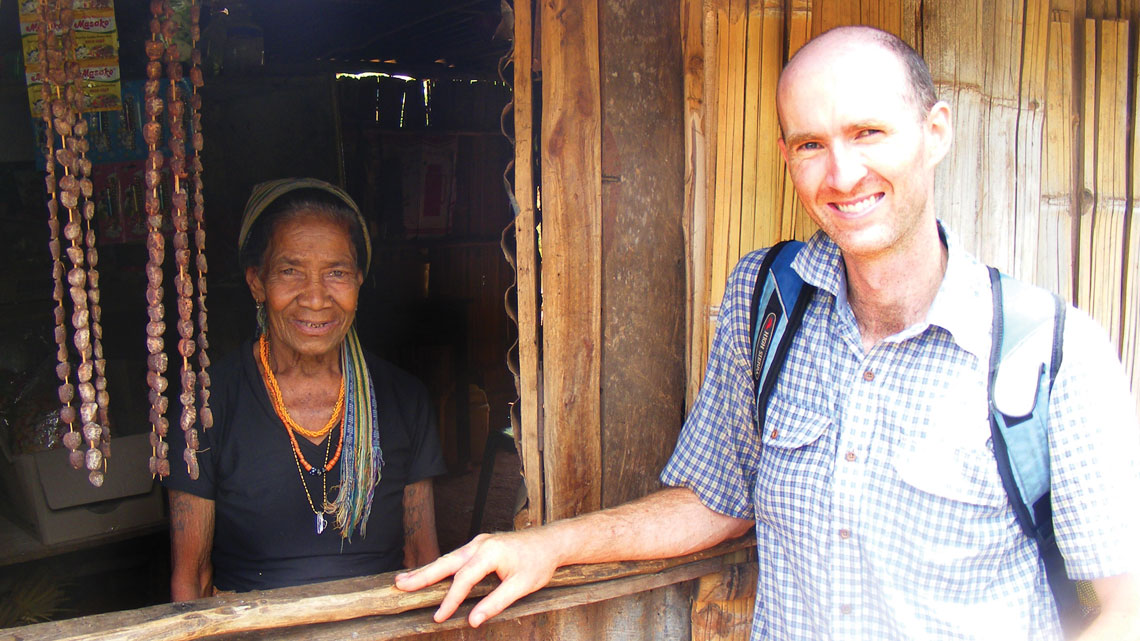One plant breeder is committed to making a difference in feeding an ever-growing global population.
Plant Breeders Without Borders is the concept of Anthony Leddin, an Australian plant breeder who has a keen interest in aid development. “I’ve been so fortunate and lucky to become a plant breeder,” Leddin says. “Now it is time to help in regions of the world that are not as fortunate.”
Plant Breeders Without Borders is a system where plant breeders can volunteer their time in plant breeding projects in third world and developing countries. But Leddin’s vision doesn’t stop there.
He sees this as an opportunity for undergraduate students who are interested in plant breeding to get involved. “They will be mentored by the senior plant breeder on the project so that we can increase the number of plant breeders around the world and show students how exciting plant breeding can be,” Leddin says. “People on the ground will be trained as plant breeders so that they have ownership of the project and future job opportunities within the industry.”
Not only will the industry benefit from breeders who are able to think outside of the box, but they will also have to work with limited funding. “It teaches plant breeders to work with what they have … making them more resilient,” Leddin says.
His idea for Plant Breeders Without Borders is similar to that of Doctors Without Borders. Plant breeders would be responsible for helping to train locals in the art and science of plant breeding, while mentoring undergraduate students from overseas.
“The idea is to train people on the ground with hands-on experience so that when visiting plant breeders leave, the local farmers can continue the breeding
work with support from the plant breeder back in their home country,” he explains.
Leddin attributes his inspiration to a book he read called The Coming Famine, authored by Julian Cribb. “This book is about the need to double food production by 2050 to feed the estimated 9 billion people that will inhabit the world,” Leddin says. “By breeding crops with higher yields and greater disease resistance, plant breeders can help solve this challenge.”
Leddin also believes that many plant breeders who were apart of the Green Revolution have or are retiring, making knowledge transfer to the new generation of plant breeders more important than ever. “It’s time to show the next generation that plant breeding is an exciting career that offers opportunities to travel overseas and work on meaningful projects,” Leddin says.
Plant Breeders Without Borders also provides breeders an opportunity to work with unique crops that many in the industry are not working on.
New Developments
Leddin is very proud that Plant Breeders Without Borders will debut its first pilot project in Ethiopia in February 2015. In partnership with the International Livestock Research Institute in Addis Abba, the project will focus on improving forages for small livestock holders.
“Plant breeders have been very positive toward Plant Breeders Without Borders and want to volunteer,” Leddin says. “There is great interest from breeders who have been exposed to regions with poor agricultural areas … they know what it is like to see hunger.”
Today, Leddin is looking for “champions” for Plant Breeders Without Borders in different regions of the world. These champions will help promote the importance of plant breeding and further the reach of the program.
“People on the ground will be trained as plant breeders so that they have ownership of the project and future job opportunities within the industry.”
— Anthony Leddin
While he won’t admit it, Leddin is the primary champion. He’s spent numerous hours calling upon a number of organizations with the aim of growing his vision. “I have four universities in Australia that are interested in the undergraduate mentoring program,” Leddin says, noting that the universities are willing to provide funding to get the students on site.
He also has government and non-government organizations interested in funding traveling costs for plant breeders who sign up to work on Plant Breeders Without Borders projects.
Additionally, Crops for the Future, which is dedicated to the development of neglected and under-utilized plant species, has agreed to help Leddin determine and identify locations and plant species where a Plant Breeders Without Borders project can yield meaningful results.
Other organizations Leddin hopes to bring on board include the Food and Agricultural Organization of the United Nations, Australia Business Volunteers, The Crawford Fund and The Noble Foundation.
While the seed industry and plant breeders have shown interest, Leddin says it’s been difficult to find a major sponsor for new and future projects.
Opportunities Abound
“I see great opportunities for the Western world to become involved and to help prevent hunger in the world,” Leddin says. “There are many regions that have opportunity for growth in agriculture, and plant breeders are important to ensuring this growth continues.”
In essence, the purpose of Plant Breeders Without Borders is to help transfer knowledge. Ultimately, Leddin hopes to create more plant breeders around the world to feed the world’s growing global population.
His motto for Plant Breeders Without Borders: “Give people seed, feed them for a year. Give them a tree, feed them for 10 years. Give them the knowledge to plant, feed them for a lifetime.”












